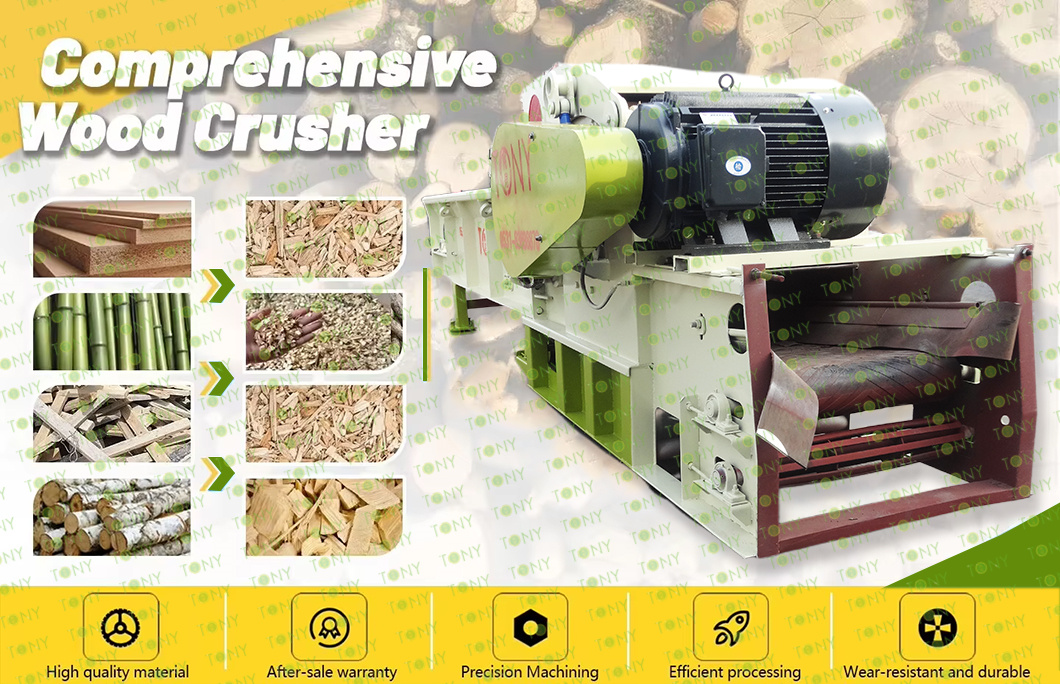Urban biomass resources (such as garden prunings, construction waste, furniture processing scraps, and municipal landscaping waste) have long been considered "low-value waste," primarily disposed of by landfill or incineration (accounting for 15%-20% of total urban waste). This wastes resources and generates carbon emissions. Wood crushers transform these wastes into high-value raw materials through volume reduction and resource utilization:
1. Solving the Challenge of Urban Greening Waste Disposal
Pruning branches and fallen leaves from urban gardens (such as street tree trimmings) are irregular in shape and bulky, requiring traditional landfilling. After processing in crushers, their volume is reduced by 60%-70%. The wood chips can be directly used to generate electricity in urban biomass thermal power plants or as mulch for urban landscaping (to inhibit weed growth and maintain soil moisture), achieving "in-situ recycling."

2. Recycling Urban Wood Waste
Waste wood from building demolition and furniture factory scraps, after being crushed to remove metal impurities, can be processed into homogenous wood chips. This can be used as raw material for wood-based panels (such as particleboard and fiberboard), replacing virgin wood (every ton of waste wood used saves 3 cubic meters of logs), alleviating cities' reliance on wood resources while reducing the environmental pressure of "construction waste-landfill."
3. Bridging Urban Energy and Environmental Needs
City district heating and industrial heating have a high demand for standardized biomass fuel. Wood chips processed by crushers can be used as feedstock for biomass pellet plants (pellet plants built around cities produce pellets from urban wood waste) and supplied to hospitals, schools, and other facilities. This creates a closed loop of "urban waste-chips-pellets-energy," reducing urban carbon emissions (biomass energy emits only one-fifth the carbon emissions of coal).
The essence of the comprehensive crusher is to solve the core problems of biomass resources being "dispersed, inefficient, and difficult to utilize" through "reshaping" (converting messy raw materials into standardized wood chips): for rural areas, it turns "field waste" into "cash crops"; for cities, it turns "garbage burden" into "circulating assets"; more importantly, it opens up the flow channels of urban and rural biomass resources through standardized processing, providing key technical support for building an "urban-rural comprehensive" biomass circular economy system, and ultimately promoting biomass resources from "idle waste" to "value release of the entire industrial chain."





















